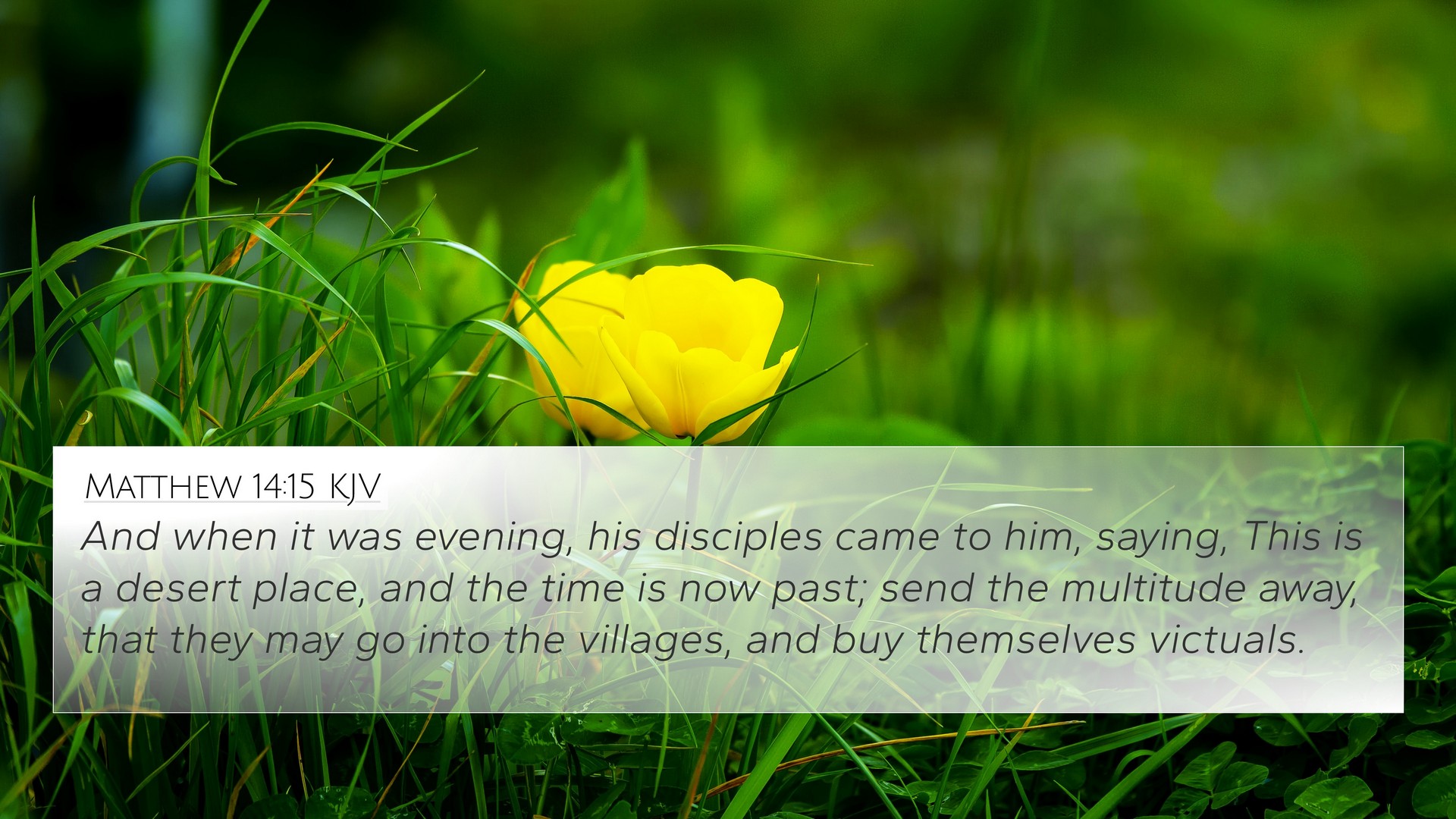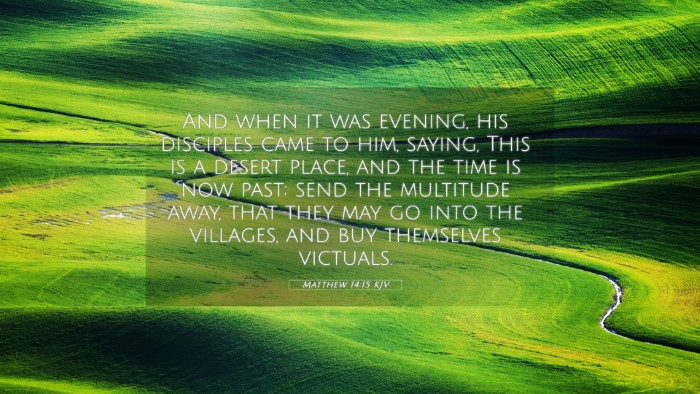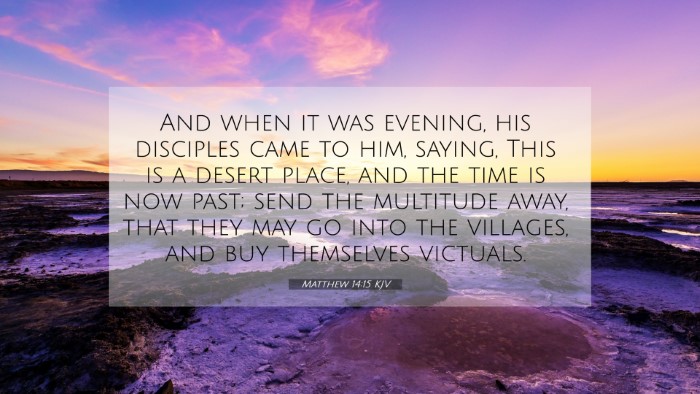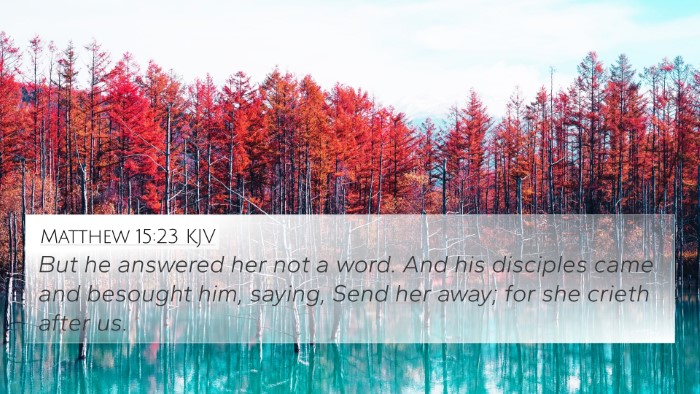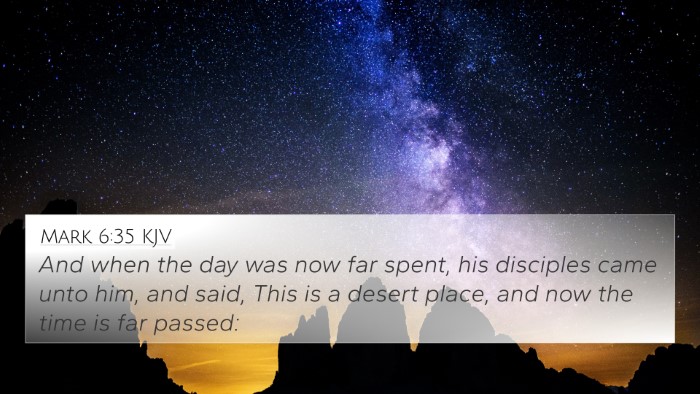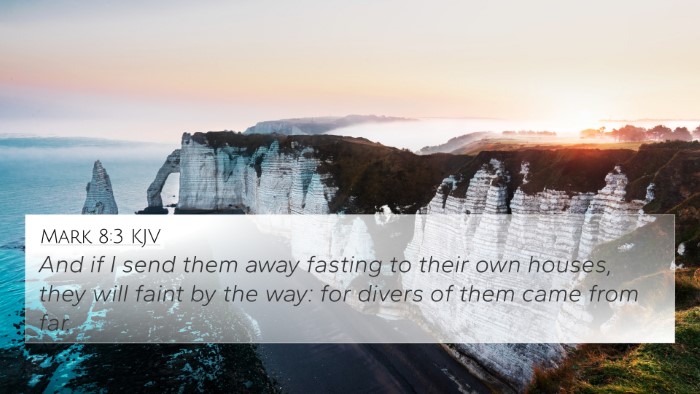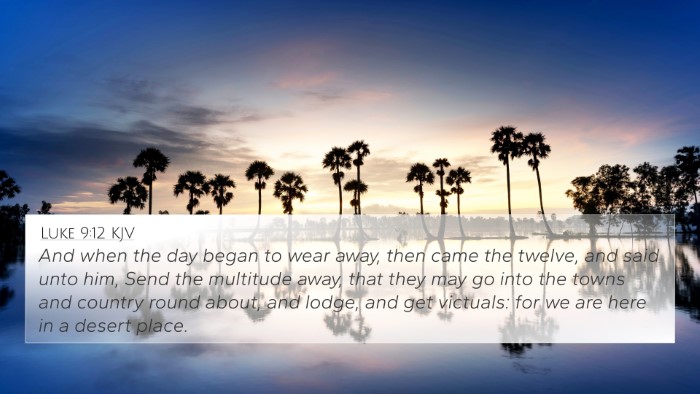Understanding Matthew 14:15
Matthew 14:15 states: "When it was evening, the disciples came to him, saying, This is a desert place, and the time is now past; send the multitude away, that they may go into the villages, and buy themselves victuals."
Contextual Overview
This verse occurs during the miracle of the feeding of the five thousand. Jesus had been teaching and healing the sick, and as evening approached, the disciples expressed concern over the crowd’s needs.
Commentary Insights
- Matthew Henry: Henry notes that the disciples recognized the physical needs of the crowd in the wilderness. Their suggestion to send the multitude away highlights human limitations in addressing spiritual and physical needs.
- Albert Barnes: Barnes emphasizes that this passage illustrates the disciples’ understanding of the situation; they saw a problem that was beyond their capabilities. However, they did not yet fully comprehend Jesus' ability to perform miracles.
- Adam Clarke: Clarke points out the logistical challenges posed by the location and timing. He explains how the disciples’ approach reveals a reliance on human wisdom rather than divine intervention.
Key Themes
- Human Limitations: The disciples’ concern reflects a common human response to overwhelming situations. They saw a scarcity of resources and felt helpless.
- Divine Provision: This moment sets the stage for a miraculous feeding. It shows that what is impossible for man is possible for God.
- Leadership and Responsibility: The disciples acted as leaders, trying to manage the crowd despite their limited resources; a reminder of the responsibility that comes with leadership.
Bible Verse Cross-References
- Mark 6:35-36: Another account of the same event, showing the disciples’ concern over the time and place.
- John 6:5-7: Emphasizes Jesus' question to Philip regarding where to buy bread, probing the disciples' faith.
- Luke 9:12: Similar narrative highlighting the need for food and the response of the disciples.
- Exodus 16:2-4: The parallel of God providing manna in the wilderness, foreshadowing Jesus' miraculous provision.
- Psalm 78:19-20: A reminder of God’s ability to provide sustenance in the wilderness, connecting Old Testament provision to New Testament fulfillment.
- Matthew 6:31-33: Jesus teaches about not worrying over material needs, contrasting the disciples' initial concern.
- Philippians 4:19: Assurance that God will supply all needs, corresponding to the theme of trust in divine provision during scarcity.
Conclusion
The events in Matthew 14:15 show the intersection between human concerns and divine intervention. Through careful examination and cross-referencing related Scriptures, one can appreciate the broader narrative of faith, provision, and the miraculous ability of Jesus to transform unavailability into abundance.
Keywords for Further Study
- Bible verse cross-references
- Connections between Bible verses
- Linking Bible scriptures
- Comparative Bible verse analysis
- Bible verses that relate to each other
- Cross-referencing Biblical texts
- Thematic Bible verse connections
- Bible verse parallels
- Scriptural cross-referencing
- Inter-Biblical dialogue
- Tools for Bible cross-referencing
- Bible concordance
- Bible cross-reference guide
- Cross-reference Bible study
- How to use Bible cross-references
- Bible cross-reference system
- Cross-referencing Bible study methods
- Bible reference resources
- Bible chain references
- Comprehensive Bible cross-reference materials
Further Reading
For those interested in deeper theological exploration, consider how these themes manifest across different biblical texts, comparing between Gospels and considering how Jesus’ miracles addressed both physical and spiritual needs.
